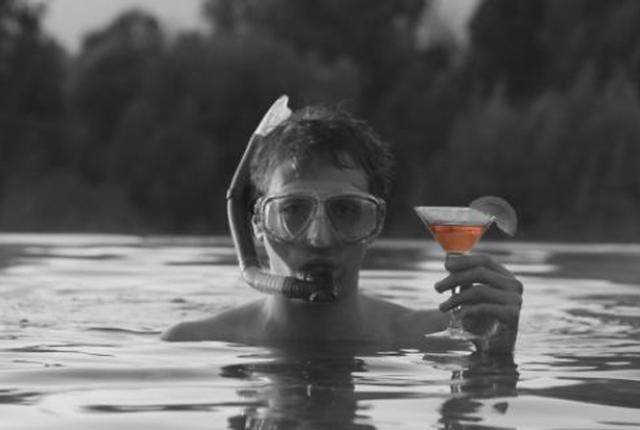Archive | Reviews
20 Feet From Stardom Is the Absolute Best
20 Feet From Stardom, Morgan Neville’s documentary about backup singers, deserves an objective review because without any qualifications it is the finest film of 2013 thus far. It channels its subjects’ greatest strengths—big wind, an uncanny ear, a fastidious work ethic, a knack for knowing when to sing and when to stop, and an indomitable spirit—and in doing so pulls back the curtain on a rarely considered world, which is the very best function a documentary can fulfill. What’s more, by suggesting with an infectious, clear-eyed joy how this world connects to everything else, it fulfills one of the very best functions of any movie.
But part of what makes this film so extraordinary is that it summons really personal responses. I’ve seen it twice so far and during both screenings the audiences—full of professional critics!—spontaneously burst into applause and tears more than once. God knows I cried through both showings.
At this point I’ll come clean with my own association with the material. My father, an atheist-Jewish computer science professor hailing from lily-white Massachusetts, has had a lifelong romance with R&B, soul, doo-wop, gospel, blues. Certainly he’s not the only Jewish man in his generation to evince a passion for what’s still sometimes known as black music (I won’t even get into how complicated that is) but his commitment has proven steadfast and often endearing. In our family a Sam Cooke or Aretha Franklin album was always spinning on the turntable or pouring out of the car speakers. And at every opportunity he sang those songs himself, warbling in his cracked, earnest falsetto while I did backup.
He taught me young. Starting around 5 or 6, I learned to listen closely so that whenever he’d break into a lead I could chime in with the right oohs, ahhs, babies. I’d croon “No, no, no” while he’d howl Frankie Lymon’s “I’m Not a Juvenile Delinquent.” He’d sing “Respect” and I’d add, “Just a little bit,” just like Aretha’s sisters did. Did I want to sing lead? Not really. I was a daddy’s girl who was fiercely proud to support him as he sang his heart out. But as I began to come into a limelight of my own—around age 11 I started doing some TV spots—my father and I began to part ways. I couldn’t help but observe he preferred to sing lead in his own house, and from this I learned the classic lessons of the backup singer: that sometimes it was better to blend than to shine, that adaptation was necessary for survival, that you had to know when to cut your losses, and that I loved the music for its own sake, regardless of whether I could gain any rewards by doing so.
So I get backup singers. And the dynamite news is that Morgan Neville does, too. He doesn’t trip over himself as he carefully builds the arcs of these individual women’s lives into something that is, fittingly, bigger than the sum of its parts. Starting with a credit sequence in which he slyly reappropriates artist John Baldessari’s work by applying dots to the lead singers in vintage R&B images, Neville draws upon whatever works best to tell this ultimate underdog story. He enlists some of the biggest names in the music business—Sting (poncey as ever), Bruce Springsteen, Stevie Wonder, Mick Freaking Jagger—to lay out the enormity of these women’s contributions to the twin canons of rock and roll and R&B. Wisely, though, he mostly lets the women speak for themselves. Continue Reading →
Joss’ Much Ado About Nothing Is Something Else
 It’s no surprise that it took an American who cut his teeth on TV to successfully film a Shakespearean comedy. TV, unlike movies, has always been about the writing, and though the rise of premium cable has changed that to some degree (the lush visuals of Mad Men, including Jon Hamm himself, would have been inconceivable even a decade ago), TV remains more writing-focused than nearly all films that come down the pike.
It’s no surprise that it took an American who cut his teeth on TV to successfully film a Shakespearean comedy. TV, unlike movies, has always been about the writing, and though the rise of premium cable has changed that to some degree (the lush visuals of Mad Men, including Jon Hamm himself, would have been inconceivable even a decade ago), TV remains more writing-focused than nearly all films that come down the pike.
Still, the sheer pleasure of Joss Whedon’s Much Ado About Nothing does surprise, if only because a really terrific film always comes as the nicest of surprises. Shot against a modern Southern Californian backdrop in a stylish rather than showy black and white, it looks just good enough to prove undistracting. And peopled with an equally unshowy cast of TV actors rather than movie stars, this Much Ado About Nothing has the good grace to duck an ado about anything. Except the language, which soars here, unadorned by the smoke and mirrors dooming all too many cinematic adaptations of the Bard’s work.
Like TV programs, Shakespeare’s works are truly populist—not so much by throwing a few crumbs to the groundlings as by casting a spell that enchants the largest of human common denominators and raises us all up in the process. There’s a reason his works established the templates upon which nearly all subsequent stories are based. In his plays Shakespeare lays out the most universal, the most timeless, the most glorious messes we humans ever make for ourselves—triangles and intrigues built upon paranoia, greed, lust, envy, self-hatred, tribalism—and then gently coaxes us into revelation by virtue of the words, the words, the words.
The assumption that bumperstickerese and monosyllables are required to reach the “little people” has always been wrongheaded. People from all walks of life comprehend the King James Bible, thous and begats and all, and the same can be said for the diction of Willy Shakes (as is the Bard’s handle on, of all things, Twitter) when it’s allowed to speak for itself. Yet film directors forget that too often, either drowning their adaptations in pomp and circumstance (here’s looking at you, Branagh) or sidestepping the breadth of the verse. Not Joss, though. He who fed strong (and sometimes queer) women to the American viewing public without inciting a major backlash has made a Much Ado both gimmick- and fancy-free. He circumvents the intricate Italian politics that have always plagued this story by updating Leonato and crew as big businessmen. The inobtrusive wardrobe, hair, music, and set here harken back to the 90s, that most stylistically innocuous of decades (and Whedon’s TV hey day, don’t ya know). And it goes without saying that the plot and verse endure very few embellishments.
All the better to lay bare those screwballs, which actually do get rawther sexy. (Shakespeare always does.) Behold Nathan Fillion, who plays Dogberry as a menschy beat cop long resigned to buffoonery. Behold that ultimate TV actor Clark Gregg, who plays patriarch Leonato with gleaming eyes and toothless smile. Best, behold the ever-flashing Beatrice (Amy Acker) and Benedick (Alexis Deniso), who (prat)fall over themselves again and again in their efforts not to be laid bare. In sooth, the fleetfooted wit and eroticism of this production is steeped in just enough pop. It sparkles. It stirs. It does not shake.



